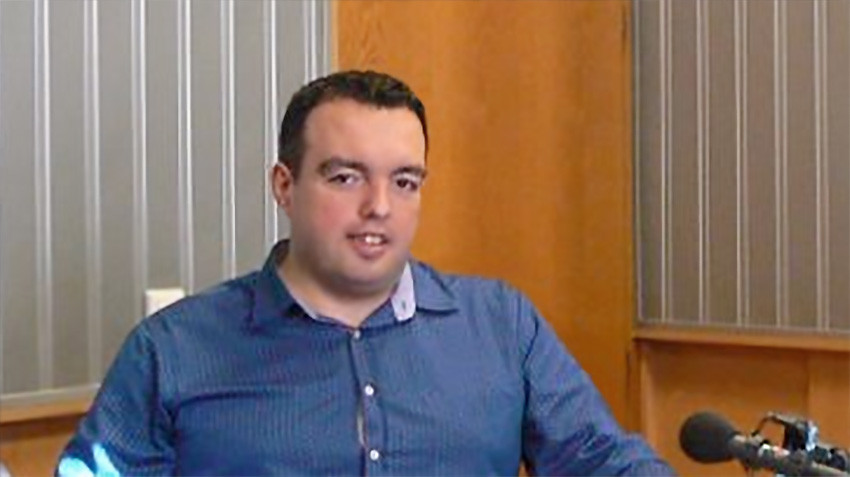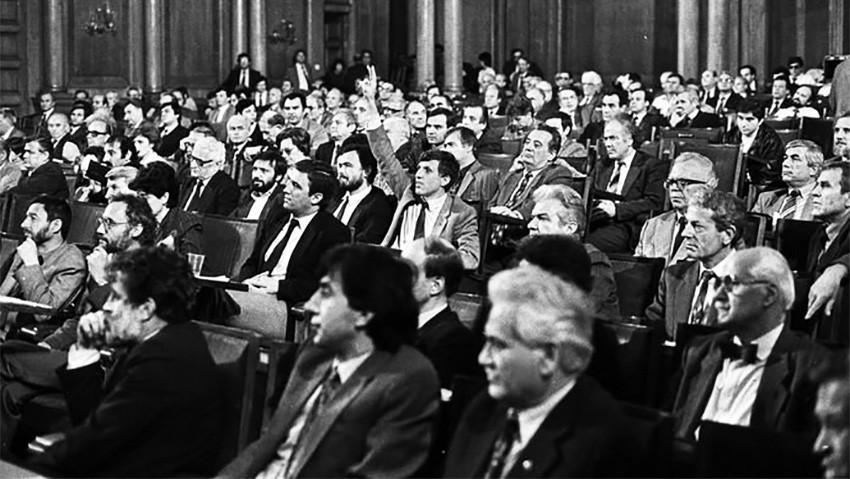The evolution of elections in post-liberation Bulgaria passed from an initial self-organization of electoral bureaus and a majority voting system, to the introduction of proportional representation, the first printed ballots and registration of candidates for MPs by the court. After 1937, parliamentary elections were held in the country even without the formal existence of political parties – a fact which qualifies as a violation of the constitution.
“The idea of these elections was not so much to give parties some kind of representation as to legitimize the regime of Tsar Boris III,” explains historian Svetoslav Zhivkov from Sofia University. “In Bulgaria, in the period from 1934 until 1938 there was no parliament. That is why public sentiment started leaning towards a reinstatement of the constitution and civil rights. At the time, elections of this same kind were taking place in other authoritarian dictatorships – from Portugal to Yugoslavia, Romania and Greece. The regime in this country, on the other hand, was not as draconian. It is true the parties were formally dissolved but they did continue their existence as political groups. And, note this – in 1938 each one of the candidates had to fill out a declaration that they are independent. All politicians from the opposition filled out such declarations and quite a few of them won seats. In the parliamentary elections in 1938, out of 160 MPs elected, 63 were from opposition political forces, which is actually quite a good number.”

They say that the elections have always been won by the ruling party. But how many times have the ruling parties lost elections in Bulgaria?
“It does us honour that in the 19th century Bulgaria was one of the first countries of Southern Europe where the ruling party lost elections. The practice of the ruling party always winning elections is not Bulgarian, it was widespread in Southern Europe. The success of the opposition in Bulgaria in 1879-1880 was actually due to the fact they were not parties as such, they were informal groups. One of the factors was the low level of political culture. The parties, on the other hand, did not have clearly defined political profiles which meant they did not have solid structures among the rural population. They were urban, and that automatically meant that the party which ran the administration and organized the elections was at an advantage. Consequently, voters couldn’t tell the difference between the different parties and usually voted for the ruling party just to be on the safe side. There was a singular exception in 1931 when an opposition coalition, called Popular Bloc gave the ruling party, the world, and its own self the surprise of a lifetime. It not only won the elections defeating the ruling party, but actually got an absolute majority.”
When, in 1990 Bulgaria once again embraced democracy, to the surprise of many, politicians emerged from the old parties which had been wiped out by the Soviet model imposed in the country. So, were they able to provide continuity of democratic tradition, and to what an extent?

“Unfortunately, none of them are among the living now. In the late 1990s they had something no politicians after them could have had – the glamour of pre-communist Bulgaria. Yes, they definitely knew how to organize elections and what majority voting system and proportional representation means. At the very least, they had taken part in the last elections in Bulgaria before the communist regime – in 1946 when the last “competitive” elections took place. It was the same thing in Hungary and in the other countries of the Eastern bloc. When the communist regime fell and the new multiparty system took shape, some of the old political forces were restored, like the Democratic Party, the Social Democrats, the Bulgarian Agrarian National Union (BZNS). But new formations also emerged that had nothing to do with the country’s pre-communist past. And they managed to push the older parties into the background, not least for reasons of age, because part of the old Bulgarian politicians were living with the agenda of the mid-20th century. But the 1990s were a different time, after all,” says in conclusion historian Svetoslav Zhivkov.
Translated from the Bulgarian by Milena Daynova
Photos: archive and bntnews.bg
On January 6, the Bulgarian Orthodox Church is marking Epiphany. According to the Bible, on this day John the Baptist baptized Jesus Christ in the Jordan River. Traditionally, a festive Epiphany liturgy is held in churches, water is blessed, and then..
The fighting for Sofia within the framework of the Russo-Turkish War (1877-1878) began on December 25, 1877. On January 3, 1878, the city's commandant Osman Nuri Pasha began to withdraw from Sofia. His plans to set the city on fire were thwarted..
In its latest digital section “Buildings Tell a Story”, the Regional History Museum – Sofia presents the stories of iconic buildings in the center of the Bulgarian capital city, as well as of the people who once lived in them. The video initiative..
The Nikola Vaptsarov Naval Academy in Varna has marked 144 years since its founding. A period in which the educational institution has..

+359 2 9336 661
